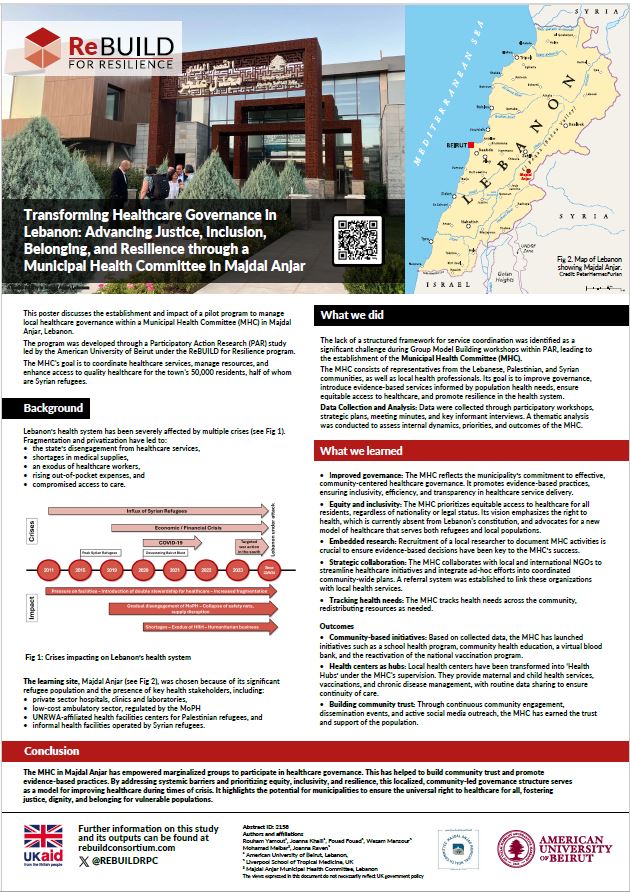Transforming Healthcare Governance in Lebanon: Advancing Justice, Inclusion, Belonging, and Resilience through a Municipal Health Committee in Majdal Anjar – a poster
 This poster (read the full version here), by Fouad Fouad and the team at American University of Beirut, was presented at the 8th Global Symposium on Health Systems Research in Japan in 2024.
This poster (read the full version here), by Fouad Fouad and the team at American University of Beirut, was presented at the 8th Global Symposium on Health Systems Research in Japan in 2024.
This poster discusses the establishment and impact of a pilot program to manage local healthcare governance within a Municipal Health Committee (MHC) in Majdal Anjar, Lebanon. The program was developed through a Participatory Action Research (PAR) study led by the American University of Beirut under the ReBUILD for Resilience program. The MHC’s goal is to coordinate healthcare services, manage resources, and enhance access to quality healthcare for the town’s 50,000 residents, half of whom are Syrian refugees
(more on that study here).